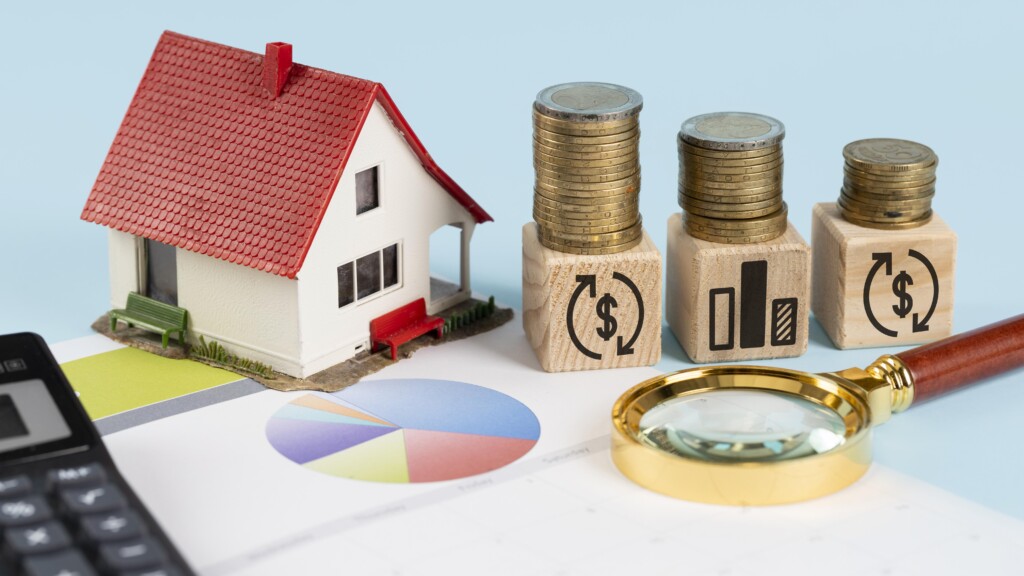Solar energy is steadily illuminating the landscape of modern business, providing a multitude of benefits that start paying off immediately and continue to add value over the long term. One of the most persuasive arguments is the considerable reduction in energy costs that solar power can bring. Across the United States, businesses of all shapes and sizes are tapping into the potential of solar energy, powering their progress while paving the way for a more sustainable future. Let’s delve into the top 10 benefits of solar energy for businesses and why your business should seriously consider harnessing the power of the sun in the U.S.
Solar panels are a great way to decrease business expenses. The cost of electricity is a significant portion of a company’s overhead, and the use of solar energy can reduce or even eliminate these costs. Upon installation, solar panels generate electricity from sunlight, a renewable and freely available resource. This reduces the amount of electricity a business has to purchase from the grid, thereby reducing electricity bills. The exact amount of savings will depend on several factors such as the size of your solar installation, your business’s energy usage, and the prevailing energy rates in your area.
For example, a business in a sunny state like California could save significantly more than a similar business in a less sunny state. According to a 2021 study by the EnergySage marketplace, the average commercial property owner in the U.S. can reduce overall energy costs by 75% by switching to solar power. Moreover, in an era of rising energy prices, solar panels provide a measure of certainty. They allow you to lock in energy costs for the lifespan of the solar system, typically 25-30 years. This means you’ll not only save money but also have a more predictable energy budget.
Commercial buildings, owned and managed by federal, state, and local governments, private companies, and businesses, account for an impressive 93 billion square feet of U.S. real estate. Their diversity ranges from small corner dry cleaners to expansive college campuses, high-tech data centers, and towering skyscrapers. According to the US Department of Energy, these structures consume about 18% of the U.S. primary energy use, more than the total energy consumption of Canada, translating into $190 billion in annual energy expenditures.

Moreover, commercial buildings generate 16% of all U.S. carbon dioxide emissions, equivalent to an astounding 826 million metric tons of carbon dioxide. Lowering energy usage in these buildings would not only have a substantial positive impact on our environment and energy security but also result in significant financial savings. This saved capital could, in turn, be reinvested into growing U.S. businesses. Energy efficiency improvements also create job opportunities in construction and technology sectors, including roles for engineers, energy managers, commissioning agents, and building operators.
Solar energy offers a viable solution to this challenge. It can transform commercial buildings into power generators that produce electricity without releasing greenhouse gases or air pollution. In contrast to conventional energy sources, solar power significantly reduces a business’s carbon footprint—a critical step in combating climate change. According to the U.S. Environmental Protection Agency, approximately 30% of energy in commercial buildings is wasted. But this also suggests an enormous potential for energy conservation. By retrofitting existing buildings and incorporating energy-efficient designs into new ones, businesses can drastically decrease their energy consumption. The National Renewable Energy Laboratory states that an average solar panel system can offset between 70 to 100% of a commercial building’s electricity use, resulting in significant reductions in CO2 emissions.
Solar panels aren’t merely eco-friendly additions to a property; they also have the potential to increase its value. As more individuals and businesses recognize the financial benefits and environmental impact of solar power, properties with installed solar systems have become more attractive on the market. According to the National Renewable Energy Laboratory, there is a clear relationship between the savings from solar energy use and an increase in property value. Their research suggests that for each dollar saved in annual electricity costs due to solar energy, a property’s value could increase by approximately $20. To illustrate this, a property saving $200 per year from solar energy could potentially see an increase in its value by around $4,000. This relationship transforms the long-term savings from solar installations into tangible monetary value, thereby making the property more attractive to potential buyers or lessees.

In addition to this, an analysis from Zillow, a prominent real estate marketplace, indicates that properties equipped with solar installations tend to sell at about a 4% premium compared to similar properties lacking solar systems. This premium can be attributed to the dual benefits of solar power: the cost savings it offers, and its environmental credentials. In today’s marketplace, the appeal of sustainability features is growing. Properties with solar panel installations offer not just the practical benefit of reduced energy costs, but also signify a commitment to renewable energy. This commitment resonates with a rapidly growing number of environmentally-conscious buyers and tenants, adding yet another layer of value to properties equipped with solar energy systems.
Energy independence is one of the compelling benefits of solar energy for businesses, particularly given the fluctuations in energy prices and potential disruptions to the supply chain. By generating electricity on-site, properties with solar installations significantly reduce their reliance on grid energy, leading to a heightened sense of security and stability. When we consider figures, it’s estimated that the average U.S. household uses about 10,649 kilowatt-hours (kWh) of electricity per year. Let’s take some numbers to paint the picture. In 2019, the average cost of electricity in the U.S. was around 13.31 cents per kWh. Therefore, the typical household electricity bill comes to about $1,418 per year. Contrast this with the use of solar panels. A typical residential solar panel system in the U.S has a capacity of around 5 kilowatts (kW) and can produce approximately 7,000 to 8,000 kWh per year in a favorable sunny environment. This amount could effectively cover the majority of a household’s energy requirements, fostering a degree of energy independence.

As we continue to improve solar panel technology and storage solutions, this level of independence is likely to increase. Battery storage solutions like Tesla’s Powerwall or similar products from companies like LG or Sonnen can store excess power produced during the day for use during the night or cloudy days, pushing the energy independence further.
Making the switch to solar power is not just a commendable environmental decision for businesses, but it also proves to be a savvy financial move. Solar systems have shown to yield an impressive return on investment throughout their lifespan, often surpassing more conventional types of investments. In an era where the cost of standard energy sources is climbing, solar energy’s cost-saving attributes become increasingly attractive. For instance, the average cost of electricity in the United States hit 12.5 cents per kilowatt-hour in 2022, reflecting an increase of over 12 percent from the previous year. This surge underscores the benefit of generating your own power, thus decreasing your dependence on grid electricity and safeguarding your business against future price increases. By investing in solar, you effectively stabilize your energy costs for the duration of your solar system’s lifespan, leading to improved budget predictability.
Additionally, fiscal incentives such as federal investment tax credits and expedited depreciation can significantly mitigate the initial outlay for a solar power system. These financial enticements make solar power a highly compelling investment capable of enhancing your company’s bottom line. When you factor in operational cost savings, tax benefits, and potential property value augmentation, the financial justification for going solar is robust. Remember that solar power systems can last for more than twenty years, translating to long-term savings for your business. This longevity, coupled with remarkable energy cost savings and financial incentives, may result in an exceptional return on investment that outpaces traditional investment options. Your exact returns will hinge on several variables, including your solar system’s size, geographic location, and specific incentives available to you.

The Federal Investment Tax Credit (ITC) serves as one of the most significant benefits of solar energy for businesses. This tax credit enables businesses to deduct a percentage of the cost of installing a solar energy system from their federal taxes. It is not merely limited to the cost of solar panels, but extends to various costs associated with installation, such as contractor labor costs, permitting fees, inspection costs, and developer fees. The ITC also covers the cost of ancillary equipment like wiring, inverters, and mounting equipment, thereby making solar energy systems more affordable and practical for businesses.
As of August 2022, following the extension of the ITC, businesses can claim a 30% tax credit for systems installed between 2022 and 2032. There is no maximum claim limit, thus enabling businesses to save significantly on substantial investments in solar energy. From 2033, the tax credit will undergo reductions, with a 26% rate for systems installed in 2033, and a 22% rate for systems installed in 2034. Another important aspect of the ITC is that it includes energy storage devices of 3 kWh or greater capacity, installed after December 31, 2022, in the tax credit calculation, provided they comply with the installation date requirements. Lastly, sales taxes on eligible expenses are also included when determining the tax credit, which further reduces the financial burden for businesses.
Capitalizing on advanced tax depreciation through a federal initiative known as the Modified Accelerated Cost-Recovery System (MACRS) can be a significant benefit for business owners. This system is designed to stimulate investment in renewable energy by offering tax deductions for the rapid depreciation of your solar energy equipment. Remarkably, MACRS allows businesses to write off the entire cost of the system within the first year of installation, instead of distributing the deductions over the lifespan of the panels. This upfront depreciation accelerates your return on investment, improves your cash flow, and offers better flexibility in financing options.
Simultaneously, businesses can gain from the Solar Renewable Energy Credits (SRECs). Each SREC symbolizes 1,000 kilowatt-hours of electricity generated by your solar setup. The beauty of these credits is that they can be used to recoup the installation costs of your solar equipment, essentially rewarding you for the energy your system generates. Moreover, under certain legislative frameworks, utility companies are mandated to acknowledge every SREC produced by customer-owned solar installations. This requirement turns your solar energy generation into a valuable commodity, and further lowers the payback period of your initial investment in solar power.
In today’s market, consumers are increasingly conscious of environmental issues, and they place a premium on doing business with companies that reflect their own values, including a commitment to environmental stewardship. By switching to solar energy, businesses can convey their commitment to sustainability, renewable energy, and the reduction of greenhouse gas emissions. This enhances their brand image and can provide a significant competitive advantage. In fact, a 2021 study by IBM found that nearly 6 in 10 consumers were willing to change their shopping habits to reduce environmental impact, with the majority of respondents indicating they were willing to pay a premium for brands that are sustainable and environmentally responsible. Moreover, businesses can also benefit from various eco-labels and green certifications that are linked with using renewable energy, and these can be used in their marketing and branding to attract and retain customers.
One of the main attractions of solar energy for businesses is its reliability and low maintenance. Once installed, solar panels typically require little maintenance (i.e. twice per year), and they come with long warranties, often up to 25 years. This means businesses can count on a consistent level of energy production for many years. In addition, solar energy is not subject to price volatility, unlike traditional sources of energy, such as coal or natural gas. This allows businesses to predict their energy costs accurately and avoid the fluctuations and uncertainties associated with fossil fuel prices. It brings an extra level of security in their operational planning and budgeting.
Furthermore, modern solar systems often come with digital platforms that allow businesses to monitor their energy production and consumption in real time. This can help businesses better manage their energy use and even optimize their operations for maximum energy efficiency.
The scalability of solar energy is another key advantage for businesses. Solar installations are incredibly flexible and can be tailored to fit a wide variety of building sizes and energy needs. From small rooftop systems on commercial buildings to large solar farms, solar energy can be scaled to meet a business’s specific requirements. Also, as a business grows and its energy needs increase, additional solar panels can be added as necessary. This modular nature of solar power systems allows for businesses to start small and expand their solar capacity as their needs and budget grow.
Moreover, the falling cost of solar technology and the availability of various financing options mean that it is increasingly feasible for businesses of all sizes, including small and medium-sized enterprises, to invest in solar energy. This ability to scale up (or down) as necessary makes solar energy a versatile and practical choice for businesses. By incorporating solar power into their operations, businesses can align themselves with broader trends towards sustainability and renewable energy, take advantage of financial incentives, achieve more predictable energy costs, and enhance their reputation among stakeholders.
As corporations seek more sustainable ways to operate, many are turning to solar power. Companies like Google, Microsoft, and Amazon have invested significantly in solar power projects, reaping benefits such as cost savings, brand reputation enhancement, and reduced carbon footprints. The following case studies demonstrate how companies from different sectors are taking advantage of the benefits of solar energy for businesses. By doing so, they are achieving cost savings, improving their brand image, and making significant contributions to the fight against climate change.
Apple, one of the world’s largest tech companies, has made substantial commitments to renewable energy. As of 2020, the company achieved its goal of 100% clean energy for all its facilities worldwide. This includes retail stores, offices, data centers, and co-located facilities in 43 countries. Apple’s new headquarters in Cupertino, California, the Apple Park, is powered by a 17-megawatt onsite rooftop solar installation – one of the largest in the world. The company’s commitment to renewable energy has not only helped reduce its carbon footprint but also solidified its brand as a leader in sustainability. This, in turn, has helped Apple strengthen its relationship with its customer base, which values the company’s commitment to environmental stewardship.
Walmart, the multinational retail corporation, is another excellent example of a business that has made significant strides in utilizing solar energy. The company has pledged to power its global operations with 100% renewable energy by 2035, and as part of this goal, it has made substantial investments in solar. Walmart has installed solar panels on the rooftops of many of its stores and distribution centers across the U.S. As of 2020, the company had over 530 locations powered by solar energy, making it one of the leading corporate users of solar power in the country. This transition has allowed Walmart to significantly reduce its energy costs and carbon emissions, demonstrating that environmental sustainability and business success can go hand in hand.
IKEA, the multinational furniture retail company, has been at the forefront of the move towards renewable energy in the retail sector. The company has committed to becoming 100% renewable by 2025, and to reach this goal, it has invested heavily in both solar and wind energy. IKEA has installed over 1.7 million solar panels on its stores and warehouses worldwide. In the U.S, for example, nearly 90% of IKEA locations have solar installations. This strategy has not only helped IKEA cut down on its energy costs but also improved its brand image as a leader in sustainability, which is increasingly important to consumers.
The benefits of solar energy for businesses is no longer just an environmentally conscious decision; it’s a strategic and financially sound one as well. With benefits ranging from significant cost savings and potential for tax credits, to enhanced brand image, reliability, scalability, and reduced carbon footprint, solar energy presents an opportunity for businesses to advance both their economic and environmental objectives.
Prominent companies like Apple, Walmart, and IKEA have demonstrated the viability and benefits of this transition. Their success illustrates that solar power is not only suitable for a diverse range of business types and sizes but can also be a critical component of a business’s competitive advantage. As the cost of solar power continues to fall, and as technology advances improve efficiency and storage, the case for solar power will only become more compelling. Businesses that adopt this renewable energy source will position themselves favorably for the future, benefitting from cost stability, environmental stewardship, and positive stakeholder relationships. While transitioning to solar power may require an upfront investment, the long-term benefits far outweigh these initial costs. Therefore, businesses contemplating this shift should consider not just the immediate financial impact but the long-term strategic benefits as well. The future of energy is undoubtedly renewable, and businesses that embrace this change will be the ones to lead and prosper in the 21st-century economy.
Depending on factors like installation size and energy usage, businesses can save up to 75% on energy costs, leading to substantial long-term financial advantages.
Adopting solar power showcases a commitment to sustainability, attracting environmentally-conscious customers, and enhancing the company’s reputation as a socially responsible business.
Yes, solar energy is highly scalable, allowing businesses to expand as their energy needs and budget grow, providing flexibility for future growth.
Stay a while and read more posts like this
In recent years, Europe has witnessed a remarkable surge in the adoption of solar panels, marking a pivotal shift towards renewable energy. Data from the...
Renewable Energy, Solar Energy, Solar Energy Basics, Solar Technology
“Unlock the Truth: Get the Facts on Solar Energy!” Introduction Solar energy is becoming increasingly popular as a renewable energy source, but there are...
Imagine a world where you’re able to cut your monthly energy expenditure substantially. A reality where your home isn’t reliant on finite,...